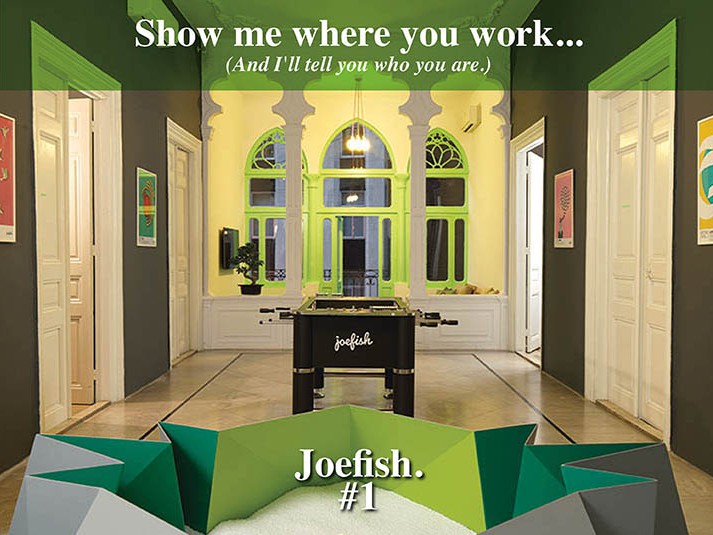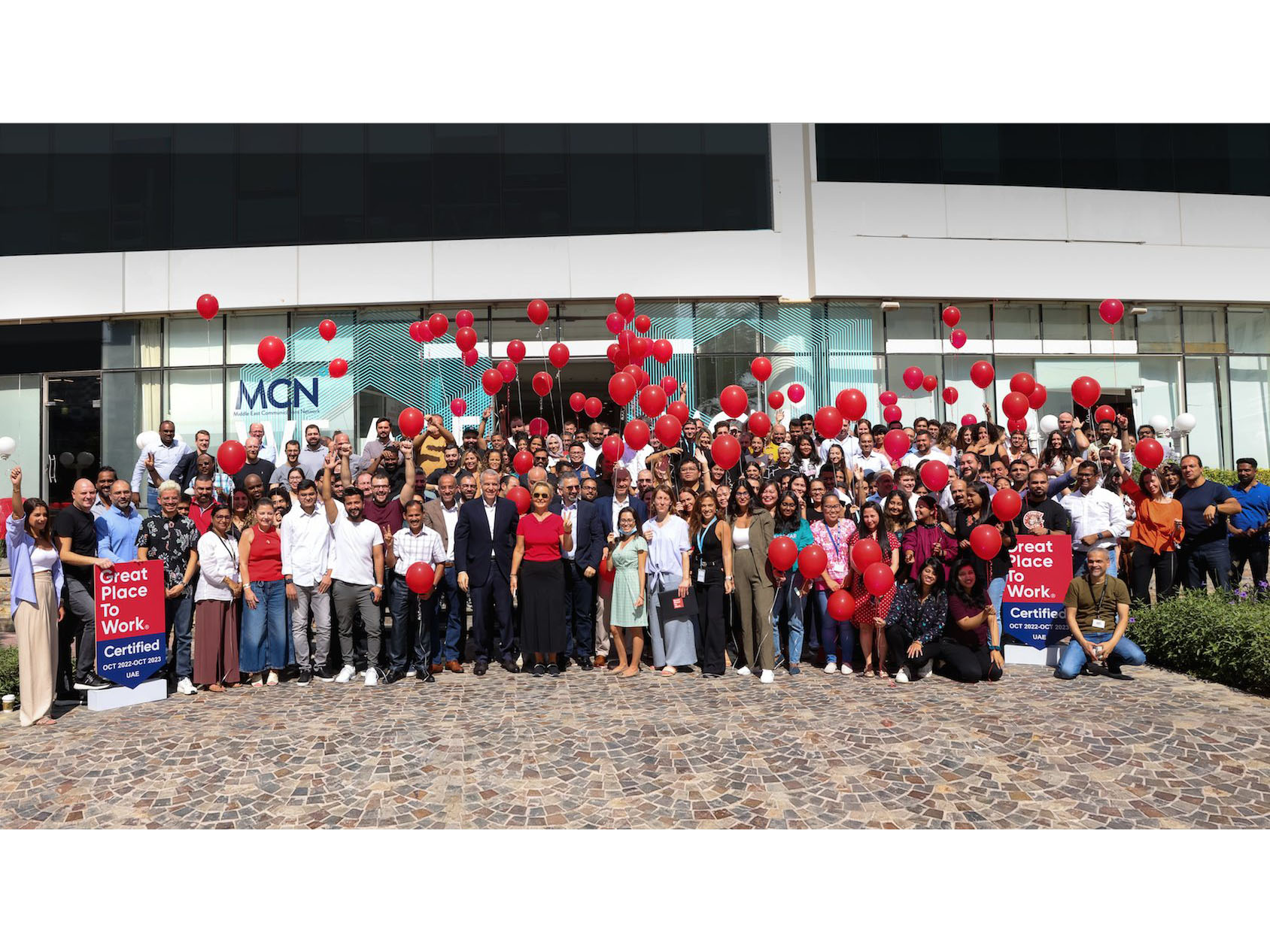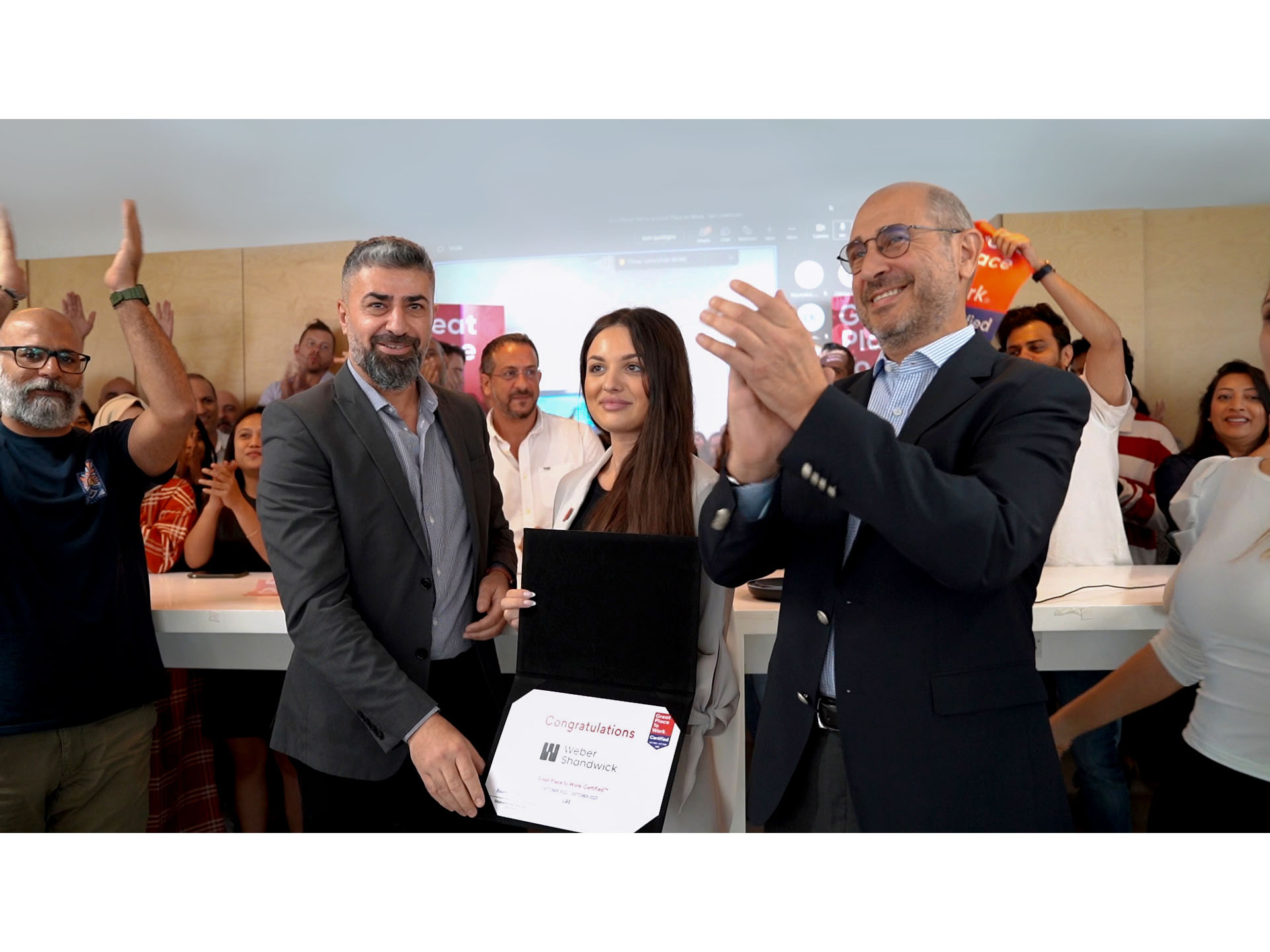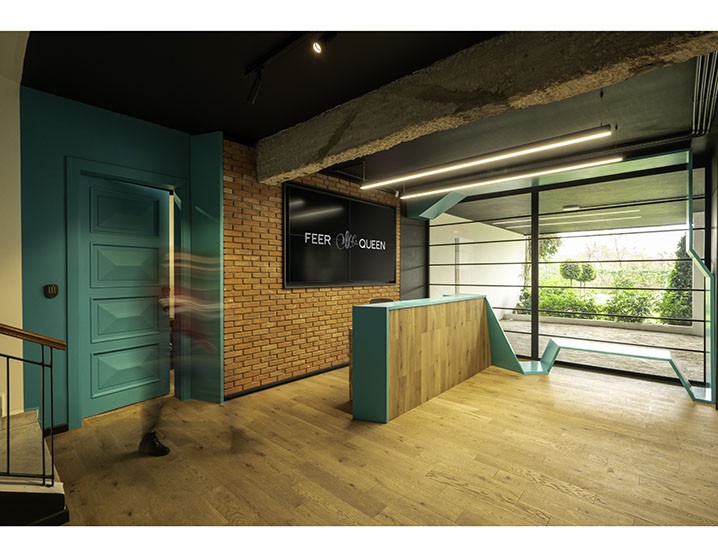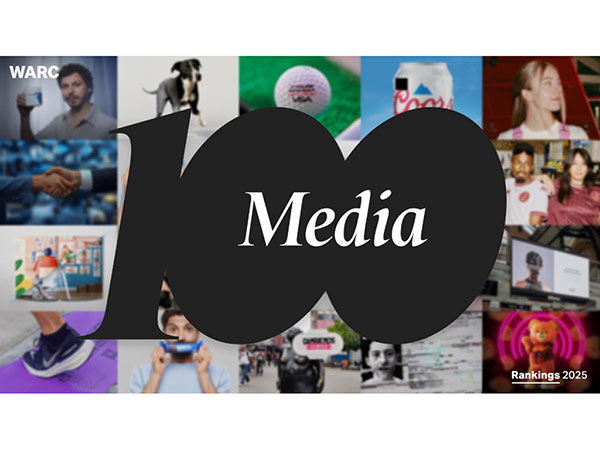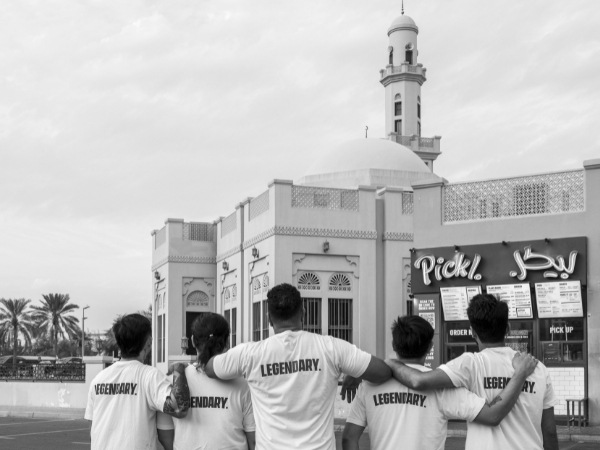News - Advertising
Show me where you work Joe Fish… And I’ll tell you who you are
by Rik Corijn
October 24, 2016

That fish, Rami Traboulsi, is not your average Joe. In 2010, he left the comfort zone of a big agency to start a journey into unknown waters. “I probably made the worst financial decision in my life,” he laughs. “I just got married and my wife had a baby. It was hard and brave. But I couldn’t take it any more. Advertising companies were stuck in ‘old thinking’. I thought: Maybe I can make a difference.”
The fish quickly settled into the wild waters of Gemayzeh. “It’s always been a melting pot of music, nightlife and creativity. So I wanted the feeling of an old Lebanese house. The first one was four buildings down the road. The space was a little tighter. Five years later, we grew so the space was tough to stay in. It took me six months to find this place. What you see now is not how it used to be. I kept all the charm, everything else was redone.”
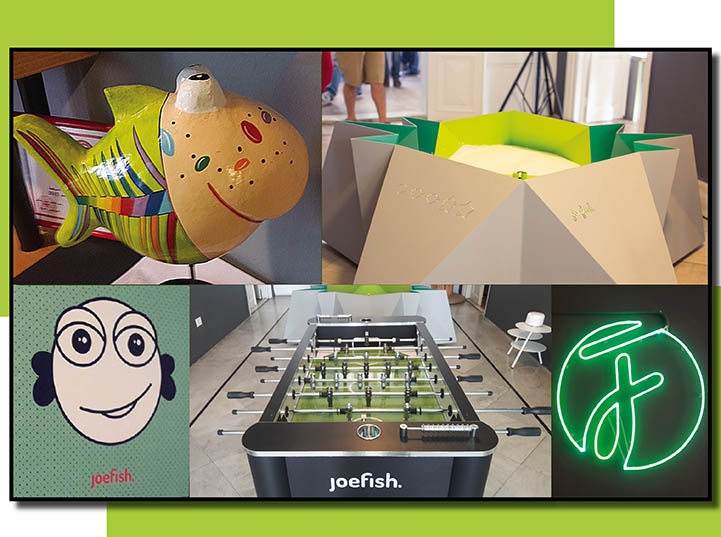
POP! Goes my heart
The result is stunning crossover. A typical Lebanese house with high ceilings; columns and balconies got a Pop Art make-over. Warm light streams through giant arched windows. A little colonnade separates the sun kissed anti-chamber from the central space. The walls are painted green. The visitor is greeted by a strange metal starfish. It used to be a wishing fountain for charity, inviting people to toss a coin for a wish upon a star. It’s a lovely designed piece, a true sculpture, now filled with little polystyrene pellets. Next to it is the must-have numero uno of every creative department: the football table. This one, made of shiny metal with glittering players and roundish score counter looks more of an object d’art. It even comes with the agency logo, playfully illustrating the agency’s sense for ‘branding.’ A neon Joe Fish sign completes the corner of cool.
With its technicolor walls, Panton chairs and Pop posters, it’s everything but your typical CEO’s office.
A CEO in Technicolor
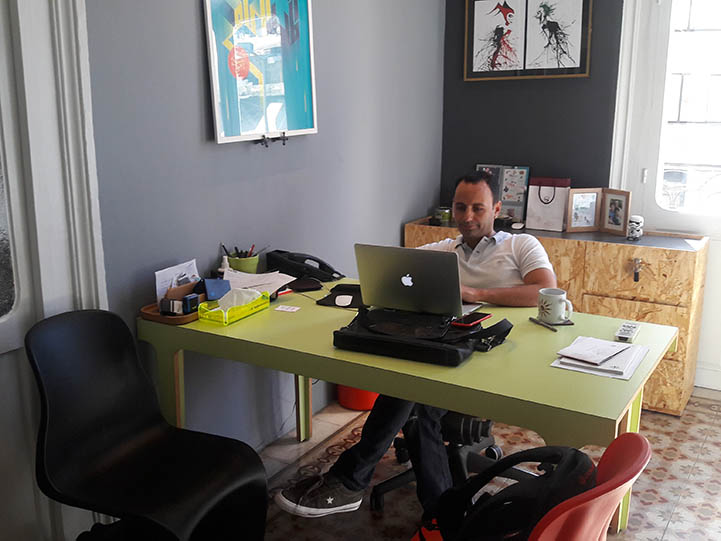
On each side of the central space, we have a series of rooms. On the left, there’s a small studio for in-house photoshoots. DIY culture rules in the digital world. Next is the office of big fish Rami Traboulsi. With its technicolor walls, Panton chairs and Pop posters, it’s everything but your typical CEO’s office. The best part is the balcony overlooking Geymazeh, perfect for that hot cuppa in the morning. Guests leave with one of the tutti-frutti coloured Paper Concept journals, the Lebanese Moleskine, branded Joe Fish. Sweet.
Meet me in the sofa
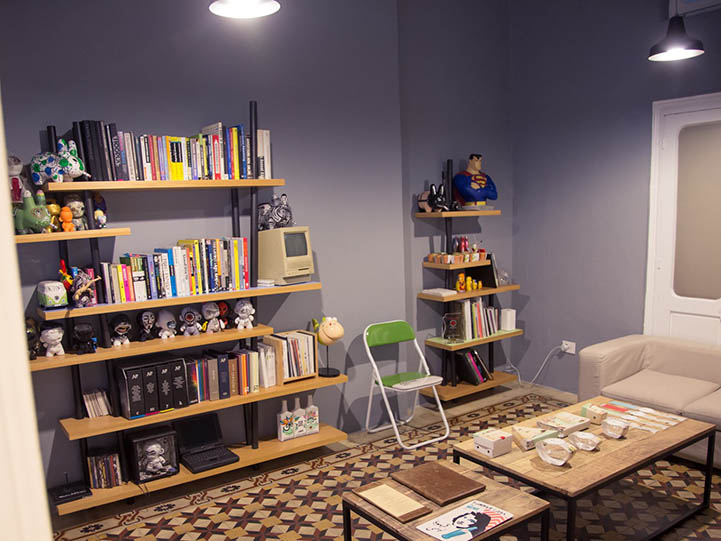
The creatives are grouped in the next room. Client service is sitting in an identical room on the opposite side. Both spaces are equipped with faux-ceilings to keep warm in winter. The pièce de résistance is the meeting room, which looks more like a living room. No glass meeting table, no leather chairs, just an L shaped sofa and a table basse. Shelves are filled with books, a Superman bust, a prehistoric Mac, zillions of figurines and strangely decorated dolls.
Puppet show
“They are called Munny. It’s a famous plastic toy from Kidrobot, the New York guru, if you know the vinyl scene. It comes in white and you customise it. So we made this competition, an activation. The best designer would win a trip to New York. We asked around 30 or 40 designers, tattoo artists, illustrators and interior designers. We sold the dolls at silent auctions and all the proceeds went to SOS Villages.”
It’s one of those cool ideas that seamlessly reflects the agency’s spirit. “I started Joe Fish as a character,” explains Rami. “I spoke to people on social media as Joe Fish. They didn’t know who he was. He was just cool. It got a lot of buzz and people were intrigued. It had nothing to do with advertising.”
Letting off steam in the Kitchen
Remember the song “You’ll always find me in the kitchen at parties”? Even here, the brightly coloured kitchen is the most animated room. Between coffee breaks, we get a chance to reflect on some of the challenges of today’s advertising scene. Rami spontaneously names three. Recruitment is the biggest issue. Turnover is massive. “We’re witnessing a new generation that’s not as dedicated, interested and responsible as before. The attitude has changed, mainly because of social media. They have their own dreams. They want to be bloggers or make an app that will earn them millions.” That same social media also brings another new problem: creatives posting their portfolios in real time, often taking credit for agency work, inspiring clients to work directly with them. “It became too open, it infects everybody. We are losing talents and clients.” The Fish keeps going. “I also want to regulate our pricing system. Let’s say, when we do a branding project and the average price is - just to give you some random numbers - 20 to 30k, you can’t have people giving eight. How can you compete? The quality is going down, the result is going down. Let’s at least put a range, a scope of work. If all of us accept, it will work.”
I look at my watch. I can’t believe for the last two hours I’ve been talking to a Fish.


